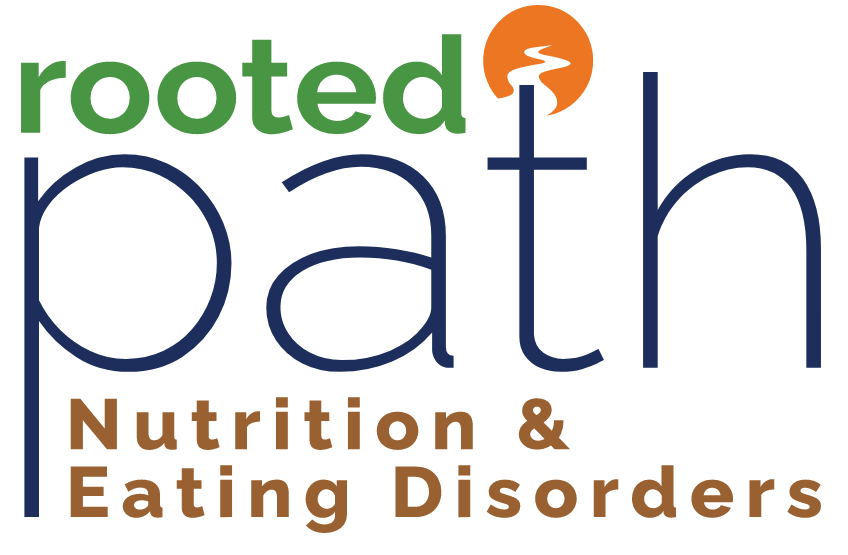February marks Eating Disorder Awareness month (EDAW), shedding light on the fact that 20 million women and 10 million men will have an eating disorder during their lifetime. Eating disorders (EDs) are intricate and often misunderstood illnesses that affect individuals of all ages, genders, and backgrounds. Eating disorders are a daily struggle for 10 million females and 1 million males in the United States.
Unfortunately, many individuals with eating disorders may not perceive their condition as severe enough to seek treatment, especially in a society that often celebrates weight loss and considers dieting a societal norm. This blog aims to delve into the symptoms of eating disorders and emphasize the crucial role Registered Dietitian Nutritionists (RDNs) play in their treatment.
Indicators and Manifestations of Eating Disorders
An eating disorder is a severe and potentially life-threatening medical condition often marked by an intense fixation on food, weight, and physical appearance. These fixations have the potential to disrupt daily life significantly and jeopardize physical health.
Unfortunately, those grappling with eating disorders may not fully grasp the seriousness of their situation. Identifying the warning signs of eating disorders is vital for early intervention:
- Obsessive Thoughts about Food and Body: Constant preoccupation with food, weight, and body shape, to the point where these thoughts are taking up space needed for other things in life.
- Changes in Eating Habits: Significant changes in eating patterns, such as extreme dieting, frequent overeating, or restrictive eating.
- Physical Symptoms: Noticeable changes in weight, energy levels, or physical appearance. This can include rapid weight loss or gain, fatigue, dizziness, GI issues, loss of your period, or changes in skin, hair, or nails.
- Emotional Distress: Feeling distressed, anxious, or guilty about eating or your body shape. Mood swings, irritability, or increased sensitivity to comments about your food or appearance can also be indicators.
- Social Withdrawal: Avoiding social situations, gatherings, or events that involve food. Becoming increasingly isolated from friends and family.
- Denial or Secrecy: Denying or downplaying concerns about your eating habits, even if others express worry. Engaging in secretive behaviors related to food, such as hiding food or eating in isolation.
- Compensatory Behaviors: Engaging in compensatory behaviors after eating, such as excessive exercise, induced vomiting, or misuse of medications.
- Lack of Control: Feeling a lack of control over eating, both during and after episodes of overeating or restrictive behaviors.
Registered Dietitians and Nutritionists are Crucial for ED treatment:
The registered dietitians and nutritionists at Rooted Path adopt an individualized approach when assisting clients, tailoring their guidance to meet specific needs. Here’s what a dietitian can do for you:
- Support you in healing from diet culture and Westernized beauty standards.
- Monitor for medical stability and closely collaborate with your medical team to ensure you get optimal care.
- Support you in eating enough and creating mindful habits.
- Help you identify the emotional triggers that keep you engaging with your eating disorder and disordered eating behaviors (such as binging, purging, restricting, excessive use of laxatives, skipping meals, fasting, etc.)
- Work with your loved ones to help build up your support team.
- Help you get in touch with your body’s hunger and fullness cues.
- Assist you to develop strategies for maintaining a healthy relationship with food and preventing relapse.
Key Takeaways:
Eating Disorder Awareness Month serves as a crucial reminder of the widespread impact of eating disorders. The heightened awareness of the high prevalence among both men and women underscores the need for support. If you or a loved one suspects an eating disorder, Rooted Path Nutrition dietitians and nutritionists are here to provide assistance. At Rooted Path, we employ an individualized approach, collaborating with medical teams to offer comprehensive support throughout the recovery journey.
Beyond nutritional guidance, their efforts encompass emotional support and mindfulness practices. Remember, healing from an eating disorder is possible. Regardless of the stage you’re in, you deserve care, and you no longer have to face this journey alone.
Written by Brandy Minks, MS, RDN/CD, CNSC
